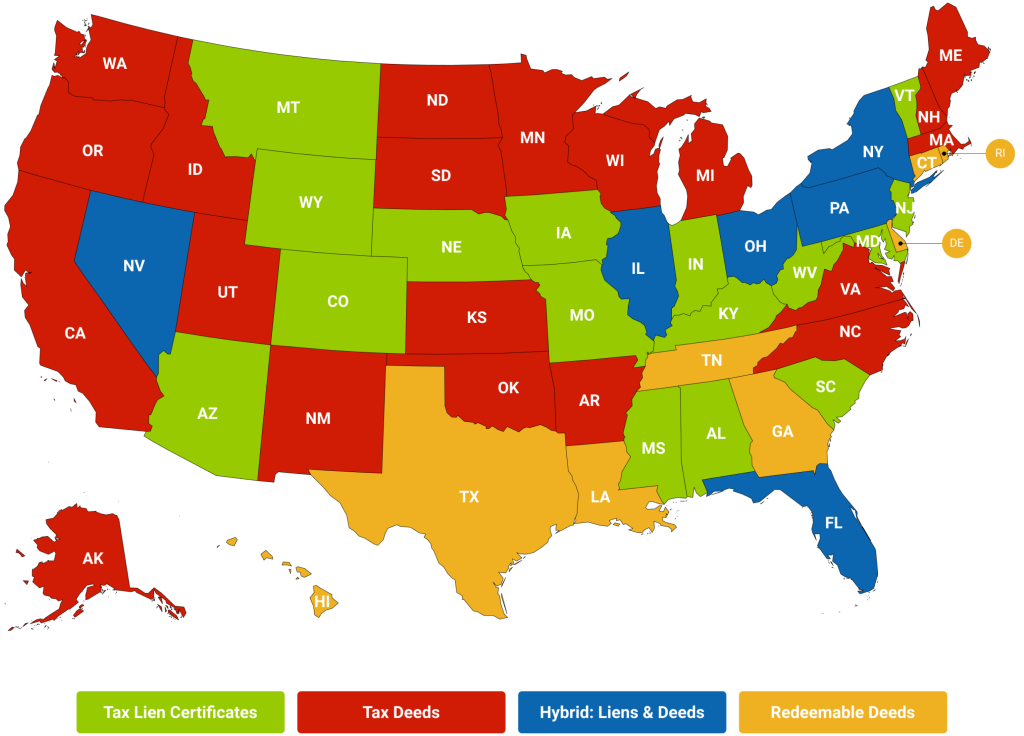
2 Simple Real Estate Contracts —Investor Friendly & Free 🙂
 Got something sweet for you today: If you’re looking for a simple real estate contract that’s (1) real estate investor friendly, (2) super simple, and (3) costs $0, then you’re in for a double dose of awesome.
Got something sweet for you today: If you’re looking for a simple real estate contract that’s (1) real estate investor friendly, (2) super simple, and (3) costs $0, then you’re in for a double dose of awesome.
That’s right—let’s ring the opening bell for another Awesome REI Swipe & Deploy!
Over the years we’ve enjoyed sharing assets from our own internal arsenal of contracts, checklists and marketing templates—things we’ve been using in our own real estate investing operations for years, which you can just swipe from us, and then deploy them in your own real estate game as you see fit.
We’ve handed you goodies like our simple option agreement, a proven letter of intent template, 47 MLS Keywords for REI, a motivated seller phone script & voicemail script, and even some marketing goodies like our favorite motivated seller postcard and even our burned house letter.
Today's tasty treat?
My simple real estate investor purchase contract…
Today’s S&D is a “double dose” because you totally get a twofer:
Not one, but TWO real estate purchase contracts you can use—one that I use on the “buy side” of a cash purchase and another, slightly tweaked version I use for the “sell” side of a wholesale deal with a cash buyer.

Seriously, these are the same two simple real estate purchase agreements I’ve been using in my real estate investing game for 90% of my deals over 18+ years.
Why would I keep using these same contracts over and over again, many hundreds of times now?
Because:
- They’re easy as pie (one side of a single page, in plain English)
- They’re super understandable (no fluff clauses, zero legalese)
- I've never had a problem with them (nope)
- They’re 100% legal (at least for me, in TN—but you should totally verify with your own counsel, of course)

Wanna walk through them?
I’m not about to hand you these contracts and send you off without some friendly insights and intel from my own experiences in using them.
So, I made you a tight, little video talking through this simple real estate purchase contract template, line by line.
Including things like:
- Essentials: Two little-known (but crucial) ingredients needed to make your simple purchase contract into a legally binding agreement.
- Key differences: Between the pro-buyer version and pro-seller version.
- EMD: Why I typically only put $10 earnest money on most buyer contracts, and exactly how I explain it to the seller.
- Consideration: Viable, non-$$$ types of “legal consideration” (interesting…and sometimes a little weird)
- Closing Costs: Why they differ in my buyer and seller versions of this contract.
- Recommended: The one, specific “Realtor” class I think most investors should probably try to take. (even if you’re not a licensed agent honestly)
- Ouch! Something I didn’t include in my contract that came back to bite me. (so now it’s def standard in my docs).
- Exceptions: The specific circumstances when I will NOT use this contract, and resort to a bloated, state-approved contract instead of these simple purchase agreements.
- More: Things and stuff and whatnot.
So, take a quick gander, then you can download these two gems below…
My sample real estate purchase contract…
Video Transcription:
JP Moses: Hey, what's up people? Welcome and I'm glad you're here. I'm going to run through not one, but two of my purchase agreements that I've been using for 18 years or so in my real estate operations. These are two agreements—pro-buyer and pro-seller—that I've carefully crafted and used on hundreds and hundreds of wholesale deals on the pro-buyer and pro-seller side of wholesale transactions.
But before I dive into that, I need to give a quick disclaimer first:
DISCLAIMER: I am not an attorney. More importantly, I'm not your attorney. and even though I'm going to be sharing my thoughts and my opinions on a legal document here, I am not offering you legal advice of any kind. So you need to consult your own legal counsel as to the legality and the specific application of what I'm about to share with you. Don't just take my word for it. Take responsibility for doing your own due diligence on this. The bottom line is what works for me and the folks that I know may not work exactly the same way in your neck of the woods and for your situation.
Now, before I turn it into the contract specifically and walk you through… there’s a few key points I want to make that you might want to know about purchase contracts, in general, if you don't know them already…
First of all, a simple real estate contract, also called a purchase and sale agreement, is basically just a meeting of the minds. It starts with one party offering terms and conditions to buy a property, which are then either accepted or rejected by the other guy on the other side of the table, the owner or the equitable owner in some cases. If the other guy changes any term or condition on the offer that was made, that offer then becomes a counteroffer. And at that point, each party just negotiates the terms and conditions back and forth until eventually they have what's called a Meeting of the Minds and then they either sign and date everything and it becomes an official contract, or they go their separate ways, if they don't get to that point.
Here's an important thing I want you to note: until the 2 parties have that Meeting of the Minds and everybody signs and dates everything, you are not technically dealing with a contract… even though it's written on this piece of paper that says it's a contract. You're dealing with an offer where the terms are still up in the air, they're still in play.
So, to be a legally binding contract, you need at least 2 essential components. You need an agreement and you need what's called consideration. Now something I just want to say about that second thing, consideration. Legal consideration can have a different definition depending on the state you happen to be operating in, but typically, legal consideration on a real estate contract is denoted by seeing maybe $10 or a $100—it's not the same thing as your earnest money. It's something else entirely. I'm not going to get into the technicalities of it, but I will say interestingly, that legal consideration, while often a requirement, may be all the time a requirement for a contract to be legal, it can be things other than money.
That was something I discovered in a simple real estate contract law class I took over a decade ago. Sometimes the contract itself can actually serve as legal consideration, is what I was told, And actually, where I live, in Tennessee, you can actually use, I kid you not—love and affection—as legal consideration for a contract. Kind of weird, but that's what the law says. I don't know what that would look like, but let's move on…
Beyond this, every state has its own unique requirements for legally binding enforceable real estate contracts, and you should find out what those requirements are for your state. Just as an example in Tennessee, a real estate contract is required to have a specific closing date to be noted on the agreement—it can't be an open-ended contract with no closing date. Now that may or may not be the same in other states, but in Tennessee, it has to be that way or the contract is technically not a legally binding agreement. So be sure and check out what your state has to say about that and other things.
As I said, the agreement—and I'm about to walk you through both of them—is the same ones I've been using personally for deals for 15+ years now for hundreds and hundreds of wholesale or quick flip deals I've done.
And even more specifically, I use it when I'm going belly-to-belly with individual sellers, but not so much when I'm dealing with banks with an REO purchase or with real estate agents on a listed property. In these situations, people typically prefer something a little fuller, maybe a little more formal, and typically feel the most comfortable dealing with state-approved forms from, say, your local Board of Realtors, for example. They're just used to seeing them.
Now, granted, these things are typically big, gargantuan documents and make your eyes cross when you look at them… they're monstrous pieces of work and unnecessarily, in my opinion, use all kinds of legalese to say things that they could just as easily say as effectively in plain English. But what can you do? Well, I'll tell you what you can do…
You can get comfortable with the idea of using those monstrous documents from time to time and better yet, I think it's worth emphasizing that you should consider taking a contract law class at your local Board of Realtors. I used to be licensed. I'm not anymore, and that was one of the most interesting and digestible classes I took.
Typically, it's going to cost you not a whole lot. And contrary to what many people believe, you don't have to be a Realtor to take those classes. Yes, it'll probably be a little boring. It'll be a couple hours where you might have to put toothpicks in your eyelids to keep yourself awake, but if you do, you're going to learn a lot about purchase contract law and the nuances of it in your own local opportunity market—and it can be a really valuable source of information for you. So, just keep that in mind.
Having said that, you'll notice that the simple real estate contract I'm about to take you through is extremely simple. It's the complete opposite side of that coin. It's just about as plain English and nonthreatening and easy to understand as it can be, which is exactly why I like to use it, in particular, for what I call mom-and-pop sellers.
So, without further ado, and that was a lot of ado do I guess, but let's dive into it together…
So right at the top it says: This agreement is made this [insert whatever the date of the contract is here] by and between [blank], hereafter called Seller(s) and [blank] and/or assigns, hereafter called Buyer.
So, this is my pro-buyer version of this simple contract. Your name would go in this blank, and of course, the person you're buying it from, the seller’s name would go in here.
Quick side note “and/or assigns” is not actually required in order for a contract to be assignable. Little Snapple Fun Fact I learned. You don't have to have those words in order for a simple real estate contract to be assignable, it's automatically assignable unless the purchase contract itself clearly states otherwise.
So, moving on…
Description of the Premises—you would put the property address in this blank, and then just Description Written as Follows. I typically write “See Deed” for a legal description and that tends to be sufficient. No one has ever had a problem with it. I see no reason to write a big long legal description.
This little paragraph description is including blah blah blah blah… this paragraph basically says that anything that's attached to the property, they're going to be leaving with the property. And I just have a quick conversation when I'm explaining it to the seller and ask them if that's the case or if there's Great Aunt Martha's chandelier that they really need to take with them, that's a family heirloom or something like that—and then we just amend the purchase contract to state that if that's the case.
Down to purchase price, the seller agrees to convey the property to the buyer for the sum of [blank]. Whatever you're going to be buying this property for with earnest money in the amount of $10. So typically, when I'm sitting down with a seller or making them a video, very much like this as I've often been known to do for remote deals, I will explain in just a matter of fact way to the seller.
“You know, I make a lot of contracts, a lot of offers on a lot of properties, and it's just not practical for me to put $1,000 down on all my offers. That's a lot of money out there.”
So, I just put $100 down or $10 down… but you know, by this time I've already built a lot of rapport with these sellers, typically, and they know, like and trust me, so they've never had a problem with it.
So down into the Terms, this is where you're going to break out who pays what, and you can break that out however you want really. But you might notice in this template I'm handing you, we used the strike through function in Microsoft Word to strike through this first section of this first paragraph rather of section one. Let's read that: Buyer and seller to equally split all closing costs, inclusive of attorney's fees, title fees and other miscellaneous costs, but NOT including any loan related costs that may be associated with Buyer’s financing. Any taxes owed will be appropriately priority before closing.
So, why is this scratched out? Well, every time I make an offer on any property with a motivated seller, I want to make sure they understand that that statement, while it seems very fair, is not part of the equation. I, the buyer, am going to pay all the closing costs. And that's even why it's in red. I want to let the seller feel like I'm the easy button in this transaction, and I have their best interests at heart in addition to my own.
And I want to be really clear about the fact that this purchase price is what they're going to be walking away with. So, I just build it into my own numbers on the deal and whatever the closing costs are, I make sure that my offer is low enough that I can pay for those no problem for my buyer and not being a problem. So, in this transaction, I'm proposing that I will even pay for their side of the closing costs.
Now this last statement, you’ll notice, isn't scratched out. “Any taxes owed will be appropriately prorated between parties at closing.” I actually got bit hard one time by not having this in my simple real estate contract and I had to pay—I kid you not—3 years’ worth of city taxes… and boy that ate up a lot of the profits on my deal. And from that point forward, I removed the strike-through.
On that line number 2, Closing to be set as soon as possible for all parties, but no later than [blank]—whatever date you feel like you can close there—without written addendum to this agreement.
Now this is where you're going to put your closing date, obviously. I, typically, personally try to pick a date that's about 60 days out from the day that we're talking and write that day and I say to the seller:
“We can close sooner, and I'm sure going to try, but I want to give us some flexibility and margin if we can have it, so that we don't have to rewrite this thing if something happens, and we ended up getting delayed for closing. So, I'm just going to try and close it before 60 days and I probably will, but let's go ahead and write 60 days in there.”
And they typically, the seller typically never has a problem with it when I explain it that way.
Number 3: Property sold as is with no warranties implied or stated from seller. This makes the seller feel pretty good, right? I tell him I'm taking this house as is. I'm happy to do that. I've done my due diligence and I'll take it with all of its ups and downs.
Number 4, This transaction shall be closed with closing attorney of Buyer’s choice, and number 5, Earnest money to be held in escrow by closing attorney.
Here's where I explain:
“Look, we're both going to close with my closing attorney because she gives me a better rate than anything you're going to get anywhere else because I close a lot of deals with her. Secondly, I'm paying all the closing costs, as you can see here, so it's only fair that I get to choose who to close this because she's going to charge less and she's going to be the one holding their earnest money.”
And so that covers number 5 and number 4, and they've never had a problem when I've explained it that way.
Number 6, Earnest money non-refundable to buyer and less title is non-conveyable or seller not available to close within the time period of this purchase contract.
This is my conversation with a seller:
“I'm not going to ask for my earnest money back, unless we can't close for some reason. For example, if the title is not good for some unknown reason or you're not able to close, Mr. Seller, those are the stipulations right there.”
So that typically makes my sellers feel pretty good, even though it's not really that strong of a line for them.
This simple real estate contract is contingent upon clear title and final inspection of the property by buyer or buyer's agent before closing. I've never had a seller who's had a problem understanding why I need clear title and a final inspection of the property before closing. And I tell them the reason I need this is because, what if a vandal breaks in the day before closing and trashes the place or one of the rooms catches on fire, maybe an electrical fire, I need to be able to renegotiate if that happens—that changes my numbers at that point.
So, this statement is in here for my protection. I get to walk through the day of closing, even up to the day of closing. The purchase contract is contingent upon making sure that everything is, at that point, as it is today. I've never had a seller struggle with it when I've explained it that way, even though, technically the way it's worded, it's kind of a free pass contingency for me, the buyer, even though I would never use it that way because that's just not how I do business.
Number 8, Seller to provide buyer with permission to access property solely for purposes of evaluation of repairs needed, blah, blah, blah, blah.
So, here's where I tell them.
“Look, we're going to have to get an appraisal. And I have to have my contractor in here to go ahead and get everything ready before we close on this thing. My partner is going to have to walk through a few times.” (And when I say my partner, that could be a funding partner, aka the cash buyer or retail cash buyer, I'm not sure who's going to finance this thing.) “My financing partner may need to walk through,” is what I say to the seller. “So we need access.”
If it's vacant, we put a key box on the door and we just ask to put a key inside. But if it's not, I tell them,
“Look, I will definitely give you 24 hours’ notice. But we gotta be able to get access to the property for these reasons before we close.”
And the reality is, of course, I've got to give my potential buyers when I'm wholesaling the ability to access the property more than anything. So, this is the clause that gives me that freedom.
Number 9, Any furniture, fixtures, attachments, and debris located in around the property and not removed within day of closing become ownership of buyer. Basically, this is saying that anything they leave after the day of closing is mine. I tell them that and they're clear on it.
And for number 10, basically the sky's the limit. You can use this for anything that you want to add. You can write in whatever terms that may not be represented here—of course, subject to your own state laws for what's legal for real estate contracts in your area. You could write in, for example, if you want a seller and buyer to wear matching red shirts on the day of closing, that’s silly, but this is where you would put something like that in.
And then of course, everyone signs and dates at the bottom and you've got a legally binding contract. As you can see, one page, simple, easy, and I love using this when I'm going belly-to-belly with the sellers.
Now, let's look at the sell side of a real estate deal. Same type of concept, but there are some key differences, and I've highlighted them, so I won't go through the whole thing. I'll just zero right in on the things that are highlighted in this video to point out and explain the differences.
First off, Purchase Price. The Seller agrees to convey the property to the Buyer for the sum of whatever you're selling it for, with—here's a change—earnest money in the amount of [blank] payable via certified funds to [blank].
I made the decision that I want my cash buyers to have some skin in the game, meaning I want them to put some earnest money down on the day that they signed to buy, because I had a couple of deals fall through once upon a time when I used to not require my cash buyers in good faith to put any earnest money down, I had a couple of deals fall through because there's really no reason for them to perform.
So, if they have a little skin in the game, and for me personally, at least $2,000 is the minimum earnest money that I want to look for. I want them to write a check to my closing company who's going to hold it in escrow when they sign the contract. That's my personal preference. All right, so that's the reason for that change. And via certified funds. They can't just write me a personal check.
On to number 1 in the Terms. This is a change, Buyer and Seller to equally split all closing costs. This is basically the same paragraph that's in the pro-buyer contract, but it's not scratched out, so we're splitting the closing costs on the B to C side of this wholesale deal, and they're going to pay their side and I'm going to pay my side.
Now to a point that Justin Wilmot recently made in another video, if my cash buyer objects to anything, if they say, “I don't want to pay for this cost or that cost,” I don't fight over those nickels either. Justin doesn't fight over those nickels. We say, okay, and we pay whatever costs they want us to pay because it's the long game we're looking for… the long-term relationship with a cash buyer.
Another little change in this contract is number 4, Earnest money to be held in escrow by a seller's closing attorney. I need specify that because, often when I close with some sophisticated cash buyers, they've got their own relationship with their own title company that's different from mine, and I still want my side of the transaction to be closed in my title company.
And that actually can happen. You can close one real estate deal at two separate title companies. So, I've put this in here because when the seller writes a check, when they stroke a check for their earnest money, I want that earnest money to be held by my closing attorney. I want to be in control of it. So that's why I added the word “seller's” closing attorney to that term.
Down in Number 8, Time is of the essence in this agreement. Adding this in, it's kind of a legalese way of saying the dates—the contract closing date, the binding agreement date—matter in this piece of paperwork. What I heard, allegedly, is if you don't have anywhere in the document, that time is of the essence, then basically any and all dates that you put into any simple real estate contract are ideally a good idea and if you miss them, it doesn't invalidate the whole agreement.
So, what this does is it legally puts the pressure on them to make sure that they don't delay on their side. This says that the dates are part of the agreement and if the date is missed, then the whole agreement can be rendered invalid. I felt like that was some safety that I wanted to put into my contracts for a couple of reasons a few years ago.
And last but not least, this was not in the pro-buyer contract…
This agreement may be executed by digital signatures. This agreement will become effective as of the date of the last signature. Basically, once we started moving into everything being handled—especially with our sellers—not at a kitchen table or not at a coffee shop, but through DocuSign or some service similar to that, we wanted to make sure early on that our title company understood that that was a legally binding agreement. So, we inserted this as a term into our contract at that time. Take it for what it's worth.
So, there you go… pro-buyer and pro-seller contracts. Simple, easy-peasy, straightforward, use them.
But firs—back to my disclaimer, do your own due diligence. Run it by someone, a professional on your side, maybe a closing attorney and say, “Hey, is there anything in either of these agreements that is illegal in our state that I need to change?”
But whatever you do, I say, make sure you keep it in plain English and stupid simple like this.
All right, thanks guys. Hope it helps, JP out.
Like what you saw?

Well, there you have it. And hopefully now you have a good grasp of how and when to use these, and a little insight into what’s important.
Just remember: Make sure your local attorney—a local one who knows the specific legal stuff for your state—reviews and approves them before you go start raising a ruckus with them yourself.
Step 1 ⤸
“Like” our Facebook page please?

Step 2 ⤸
Just leave a comment below sharing your honest feedback on the real estate purchase contract template I’m freely sharing with you. Whatever you think after hearing my thoughts behind it in the video above. Good, bad, and anywhere in between. Seriously.
Alternately, I’m also interested in hearing anything else (another resource or tool) that you’d like us to share in a future “Swipe & Deploy” like this. Do tell.
Step 3 ⤸
Then Chuck Norris will hand you over my script.
Totally serious. Just try it. 😀
 So there ya go.
So there ya go.
Leave a comment below and you'll get to download my real estate investor purchase contract—easy peasy, macaroni-and-cheesy.
And don’t forget to be awesome.


Seems very straightforward and simple which is exactly what we are looking for.
Excellent video! Nice simple contracts.
Thanks
thank you for these!
This is exactly what I’ve been looking for to address a deal I have now with a skiddish seller. Thank you!
You are Awesome!! I appreciate you sharing your forms with us!!
Loved the article and video.
Have been looking for a simple contract. Thank you for sharing!`
Been looking for a simple format.
Thank you so much for sharing
I’m ready!!!
Simple, efficient and effective
Thanks!
Looking forward to the forms. Thank you
Great information. Will be using the purchase contract tomorrow. Thanx
Seems really good and simplified
Still hoping to get your simple Sale Agreement sample you are demonstrating in this generous sharing.
thanks for the infor very helpful
Perfect for negotiating
Love your simple real estate contract.
Simple contract. Thanks.
Yes i am ready to learn
Good to know info.
Very informative info.
Worth a re-watch!
Just what this newbie needed! Thank you
Wow…thanks for the Goods!
Exactly what I need and was seeking. Thanks.
Thank you very much for the information and the docs!
Awesome document, will be very helpful in my business.
Appreciated the simple, clear information.
Great video short and to the point.
thanks for amazing and simple templates…how awesome.
Thanks for the templates and the information. Very “Awesome”!
thanks for the info!
thanks for the information on the purchase agreement really helpful
Very informative video and walk through!
Wow, this is outstanding! Thank you so much for being meticulous and super informative!
Looks great, thanks!
I was unsure on how a contract should look like, so thanks for explaining the way it should be!
JP–Nice Stuff!!
You are awesome.
This guy has it going on.
HI I love your programs, thanks
JP knows what he is doing. Thanks
This is a great video. Very helpful!
Great info on the purchase agreement! Thanks!
Really appreciate this info, JP!
This think working?
Hey there JP! Thanks for creating the great video. It answered a lot of my questions.
Great detail explanation! Looking forward to getting the documents and applying them asap.
Ready for some awesome contracts
Awesome stuff, great information. Very interested in seeing how I can apply this in NY long island
Thank you for the starter contract! Someone really likes Batman…
Oh yes, ..completely Awesome!! 🙂
Just what I was looking for….thank you
Thank you for this contract. Its very straight forward.
Great fun to work this contract with someone now!
Another outstanding video and wealth of information. Thank you for all that you share.
Short and Sweet…You’re Way Too AWESOMELY SMART!
Exactly what I was looking for.
loving the whole course thus far
I was looking for a simple contract, and thats what I got! Thanks JP
Just wanted to show some thanks for opening my mind.And most importantly, expanding my horizons!
Thank you for the simple contract contract!
Great content, great presentation. Very do-able.
Seems pretty straight forward, Thanks
Thank you so much for your simple approach!
It’s just what the doctor ordered!
This is EXACTLY what I was looking for! Thanks so much for your help…And informative videos!
Stupid simple! Love it!!!
Awesome blog post as usual!
Simplicity at its best… Love it
great, simple to use!
Simple Contract is what Im looking for Thank You
Looking forward to using these contracts and your EM tip.
Looking forward to using the contracts, thanks for the content!
Once again, thanks for sharing the wealth! Appreciate simple & free investor friendly contracts for buyer and seller. Thank you!
Wow so easy and great explanation! I’ve looked all over the web for contracts and zero are free. Such a great resource brother ! I will spread the love to new investors once I get myself started in wholesaling.
Simplicity at its best… Love it
Thanks for the info and contract…
Thank you for the information, contract, and sharing!
Awesome info as usual. I have been looking for a 1 page contract.
JP this is cool! very strait forward. Thanks for all the pieces to the puzzle. You rock
Very simple and easy to understand
Great info. The is exactly what I’ve been looking for.
Love your comfortable manner.
awesome information as always
I think this is what I am looking for.
Appreciate the simplicity!!!
Awesome Simple Info
Very well explained and smart with the video and scripting simultaniously
Good information, and simple is better for the conversation with sellers.
I really appreciate the simple information
Hello,
We have been looking for a simple ….”Sample Contract”
to use as a guide… we have found it!
Thanks. We will get back to you soon. Carl
I’m actually excited and I wish everyone success at their best.
Yes this was needed, like yesterday. Did not close yet, but
when I do I will leave a comment. Thanks
Just what I needed.
This is a very simple and straightforward contract to use! It’s great!
This site is super helpful. I refer to it whenever, I need new information.
It simple and video educational and getting rid of long contract
Awesome Contract!!
Wow! These contracts will be very helpful as I am “starting from scratch” learning this business. Thank you.
I was looking for this, a simple contract